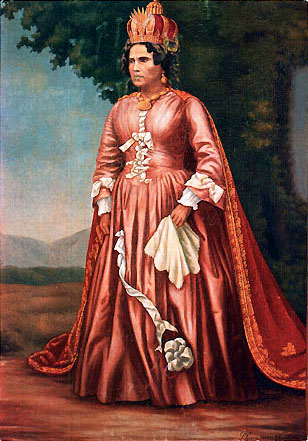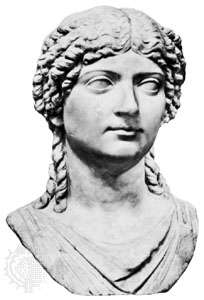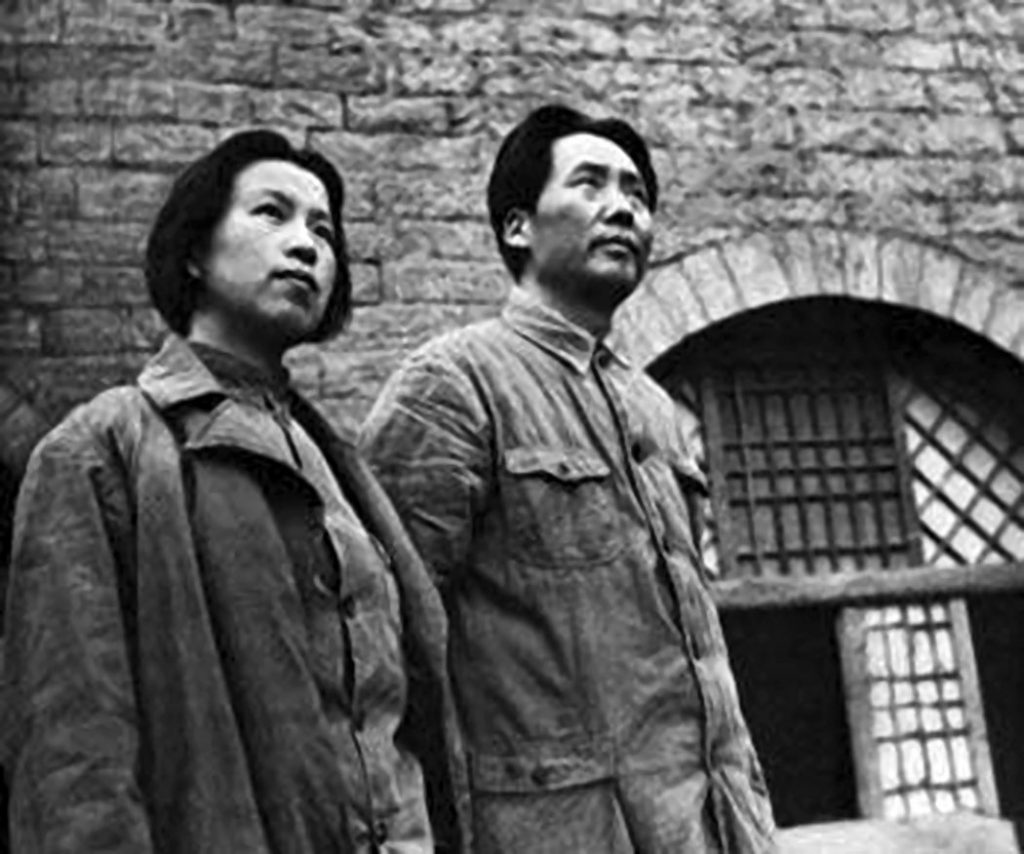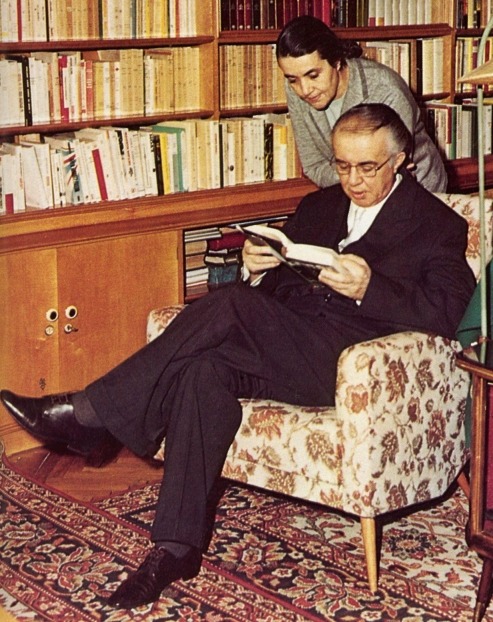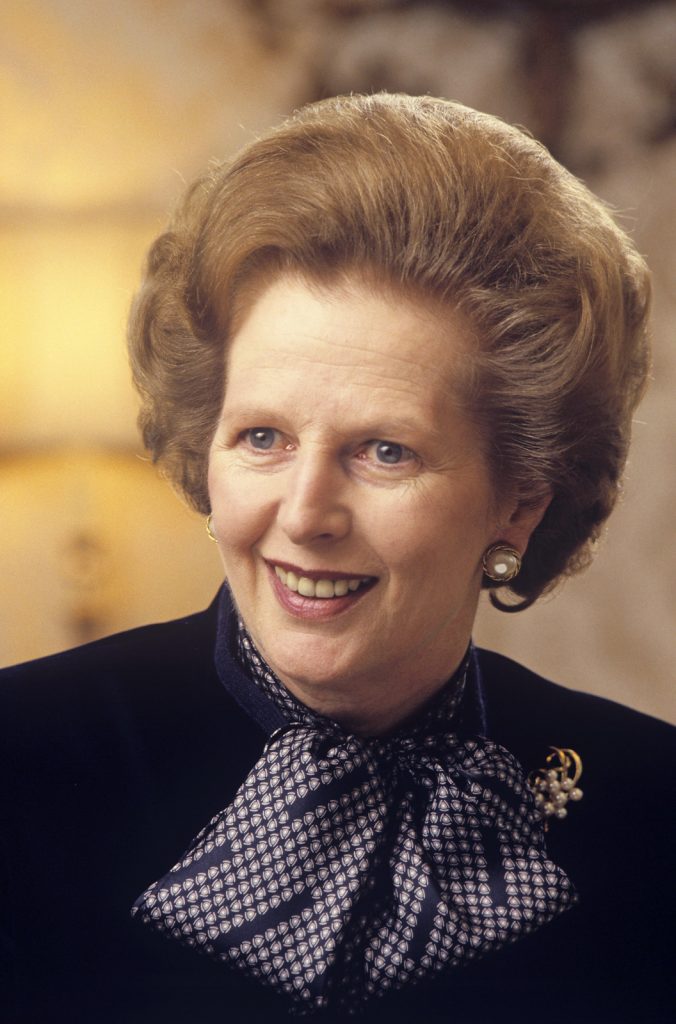In the current social-political climate of the West, there have been frequent calls for more females in government and positions of power. While not a bad idea at all in terms of equality, one idea espoused by many of these advocates is that men have had their time as the dominant species, and during that time have brought considerable devastation to mankind as well as the planet and that a future dominated by female leadership would lead to a kinder, gentler world.
As humans, we tend to believe that the grass is greener on the other side, but history has shown that human beings, regardless of gender, race, class background and religious views, are capable of bad decisions and poor treatment of both their subjects and the world. The annals of history are filled with quarrelsome queens, evildoing empresses, and modern history has yielded scores authoritative female prime ministers, dutiful dictators’ wives and brutal henchwomen.
Here are five of the most brutal female leaders in the history:
5.) Ranavalona I
Ranavalona I was the queen of the Kingdom of Madagascar, who reigned from 1828-1861. After taking over as head of state following the death of her husband Radama I, Ranavalona I instituted an isolationist foreign policy in her country, reduced trade with the outside world and advocated self-sufficiency.
Ranavalona I distinguished herself as a staunch anti-imperialist after successfully thwarting a French attack as well as refusing to succumb to pressure from European powers that wished to exploit Madagascar’s resources. However, her rule was also defined as the repression and murder of Christians, forced labor to build state infrastructure, and an expanded military presence on the island nation.
One of the more uniquely brutal aspects of Ranavalona I’s rule was the use of the “Tangena ordeal” as a means to determine the guilt of an individual accused of a crime. When the accused underwent the Tangena ordeal, they would swallow poison from the nut of a tangena tree along with three pieces of chicken skin. If the accused vomited up all three pieces of chicken skin, they were innocent. If they did not, they were guilty. 100,000 people are said to have died while undergoing the Tangena ordeal during Ranavalona I’s rule, and the practice was outlawed in 1863 following the queen’s death.
It is said that half of Madagascar’s population of 5 million died as a result of Ranavalona I’s harsh judicial practices, use of forced labor and military actions. After Ranavalona I’s death, her son Radama II ascended the throne and reversed a large majority of his mother’s foreign and domestic policies, including the court’s use of the Tagena ordeal.
4.) Julia Agrippina aka Agrippina the Younger
The younger sister of Caligula and mother of Nero, Julia Agrippina, was a Roman empress and prominent figure in the cloak and dagger politics of Ancient Rome throughout her life from A.D. 15 to A.D. 59.
During the early part of Caligula’s rule, Julia Agrippina and her two sisters enjoyed the support and affection of the emperor brother, who bestowed upon them the rights of Vestal Virgins and featured their likenesses on the Roman currency. Agrippina and her sisters are said to have had incestuous relationships with their brother Caligula. Things eventually soured, and in A.D. 39, Agrippina was exiled following her involvement in a plot to kill Caligula.
She was allowed to return to Rome in A.D. 41 by her uncle Claudius who became Emperor following Caligula’s murder. Soon Agrippina married the wealthy Crispus Passienus, who she is said to have poisoned in A.D. 47 in order to inherit his estate. She then published an autobiographical account of her unfortunate and tragic life. Following the execution of his wife over a failed coup, Emperor Claudius was persuaded to marry Agrippina, did so in A.D. 49, and she became Empress of Rome.
Almost immediately, Agrippina eliminated and exiled several political rivals in a move to ensure that her son Lucius would be the future Emperor of Rome. Claudius adopted Lucius as his own, and Lucius’ name was changed to Nero. By A.D. 53, Claudius is said to have regretted his decisions and, upon learning this news, Agrippina poisoned her husband with a plate of lethal mushrooms.
Nero promptly assumed the title of Emperor, but it did not take long for things to go south. Agrippina was eventually forced out of the palace after she began to favor Claudius’ other son, Britannicus, as Nero’s replacement. Though accounts of Agrippina’s death vary, it is generally accepted that her son Nero had her killed, thus ending his mother’s string of murderous intrigues.
3.) Jiang Qing or “Madame Mao”
Jiang Qing or “Madame Mao” was Chairman Mao of China’s 4th wife. After serving as his secretary, and head of the film office of the Communist Party of China’s Propaganda Department, she was appointed to the Politburo in 1969.
During the 60s, she used the Cultural Revolution to exact revenge and terrorize her political and personal, including some she felt had maltreated her during her acting career of the 30s.
Once heralded on propaganda posters as the “Great Flagbearer of the Proletarian Revolution,” Jiang was arrested in 1976 following the death of Chairman Mao.
In 1980, President Deng Xiaoping, who had been persecuted by Jiang during the cultural revolution, had the trial of Jiang and her co-conspirators, dubbed the Gang of Four, televised across China.
Jiang was sentenced to death. Her sentence was later commuted to life in prison. She was released from prison for medical reasons in 1991. That same year, she committed suicide by hanging herself.
2.) Nexhmije Hoxha
Nexhmije Hoxha, the widow of Albania’s late-Stalinist dictator Enver Hoxha, died on February 26, 2020, aged 99. Pictured here with Enver, who died in 1985. Nexhmije was a crucial figure in her husband’s 40-year rule, which saw Albania become one of the most isolated – from both the West as well as the Soviet Union and Yugoslavia – nations on earth and one of the world’s poorest countries. Under Hoxha, thousands were tortured, jailed, and exiled for even the slightest irreverence to socialism or perceived challenge to Hoxha’s rule.
Though jailed for nine years following the collapse of communism in Albania, Nexhmije remained an unrepentant and staunch defender of her husband’s rule right up until her death. The villa, which Nexhmije shared with Enver in Tirana’s infamous “Block” neighbourhood, which was reserved for the communist elite, remains intact with their possessions inside. Currently, a debate rages in Albania as to whether opening the villa as a museum would inadvertently glorify Hoxha’s legacy.
1.) Margaret Thatcher aka the “Iron Lady”
Margaret Thatcher served as the first female British prime minister from 1979 to 1990. She is considered by some to have been a trailblazer and an example of strong female leadership in the modern age. While Thatcher may not have engaged in the kind of murderous behaviour as others on this list, some of her actions are enough to make one question the concept that a future led by females will be kinder and gentler.
In 1971, when she was serving as education secretary, Margaret Thatcher slashed a popular program which gave one glass of free milk every weekend to every schoolchild. In an attempt to create savings, Thatcher eliminated the program for children over the age of seven, earning her the nickname “Thatcher, milk snatcher.” The cut to the program was so unpopular that in 1985 Oxford later refused to give Thatcher an honorary degree when she was serving as prime minister.
In 1989, Thatcher introduced what is known as the Poll Tax, which altered property taxes so that rather than property owners paying taxes on the rental value of their property, taxpayers paid based on the number of occupants living on the property. The move was seen as an effort to lower taxes for the wealthy with no one else benefitting from the change. The policy resulted in London’s largest riot, and the policy was not reversed until after Thatcher was out of office.
Thatcher, too, had a knack for cozying up to dictators and genocidal governments. After leaving office, Thatcher notoriously praised Chilean dictator Augusto Pinochet for having brought democracy to his country. In reality, Pinochet had overthrown a democratically elected socialist government in a military coup, but was supported in his efforts by West in opposition to socialist and communist movements. As prime minister, Thatcher also ended an embargo on arms sales to Chile and visited Ponichet when he was detained in London on an international arrest warrant for a few cheeky glasses of scotch.
In 1988, Thatcher supported the legislation, which made it illegal for teachers to speak positively about LGBTQ lifestyles under the guise of protecting moral values. She also made several high-profile public speeches in which she denounced the idea that children raised by a same-sex couple would be as well-adjusted as children raised by heterosexual couples. Thatcher’s speeches and policies are said to have encouraged bullying of gay people, especially children and teens, across the U.K.
The Khmer Rouge instituted genocidal policies in Cambodia, which murdered huge swaths of the population. The killings ceased only when Vietnam invaded Cambodia, and the K.R. was reduced to an insurgency. Thatcher, the U.S. and China advocated that the K.R. keep Cambodia’s seat in the U.N. as opposed to allowing it to be occupied by the new government in Cambodia. Britain under Thatcher even provided training to the K.R. insurgents.
On this issue of apartheid in South Africa, Thatcher infamously referred to Nelson Mandela’s African National Congress Party as terrorists and refused to impose sanctions on the government of P.W. Botha.
In the 70s, Britain was short on blood for transfusions and purchased large amounts of blood from outside of the U.K. This ‘cheap’ blood apparently came from U.S. prison donors and habitual drug users. While Thatcher’s government did not purchase the blood, it is said to have actively covered up the scandal when nearly 4,000 British patients became infected with HIV and hepatitis C.
Last, Snatcher actively denied the promotion of other women into her cabinet and famously declared feminism as “poison.”

